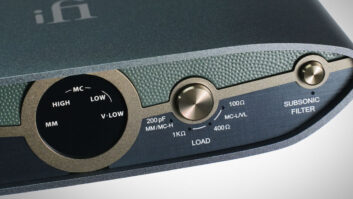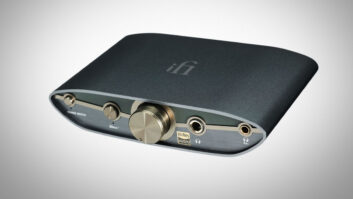Quarterly earnings reports season began two weeks ago, and the results for several top Japanese CE manufacturers were downright depressing.
All of the Japanese CE makers are on the same fiscal year cycle, with their fiscal third quarters ending Dec. 31 and covering the holiday season, and it was pretty ugly. But the results should not have been unexpected since the global economic downturn began last fall.
Other common themes echoed in the reports were the appreciation of the yen vs. the U.S. dollar and the euro and, of course, lower demand, which resulted in deeper price cuts on a wide range of CE products. Certain companies had their own unique problems due to less-than-lean corporate structures, among other challenges.
Of course, Sony took much of the headlines with its net income dropping 95 percent in the quarter, but reports from Toshiba, Hitachi and Mitsubishi were just as distressing. (See p. 6 for Panasonic’s financial released last Wednesday.)
Here is a company-by-company rundown of the numbers:
Sony reported a net income decrease of 94.8 percent to $114 million in is fiscal third quarter and said again it would likely post its first net loss in 14 years for the fiscal year.
Consolidated sales decreased 24.6 percent year on year to $23.8 billion.
The disappointing performance was expected, since Sony already warned in January that it would likely post a net loss for the fiscal year ending March 31.
In electronics, sales decreased 29.3 percent year on year to $16.1 billion due to the appreciation of the yen against the U.S. dollar and the euro, and it reported an operating loss of $175 million.
Sony reported increased unit sales for Blu-ray players, but lower sales for products such as Cyber-shot digital cameras, Handycam video cameras and Vaio PCs. The operating loss was blamed on Sony Ericsson’s performance, and a decline in income for Bravia LCD TVs, Vaio PCs and Cyber-shot cameras.
In games, sales were down 32 percent to $4.3 billion, with operating income down 97 percent to $4 million. Overall hardware sales were down as a result of the impact of the yen appreciation, and a decrease in sales of the PlayStation2, PlayStation Portable and PlayStation3. The latter game platform’s software sales were up during the quarter, but overall game software sales were down.
Sony is still projecting a 13 percent drop in fiscal year sales and a 150 billion yen loss. That loss is compared with a 369.4 billion yen profit during the previous fiscal year.
Toshiba reported lower fiscal third-quarter sales, a deeper quarterly loss, and is projecting a $3.1 billion loss for the fiscal year ending March 31.
The biggest losses are coming from its semiconductor business, and Toshiba said it will cut costs by 15 percent, shift semiconductor production to cheaper markets and cut 4,500 temporary jobs in Japan.
Toshiba’s third-quarter sales dropped by 390.2 billion yen to $16.4 billion and its net loss for the quarter was $1.56 billion, a decrease in yen of 200.9 million.
Net sales and operating losses were deeper in the quarter for digital products, with sales down 27 percent and an operating loss of 27.3 billion yen. Mobile phones suffered from lower sales and fewer shipments, with TVs and PCs having lower sales and price erosion.
Hitachi posted a $4.1 billion corporate loss in its fiscal third quarter and a 16 percent drop in revenue.
Hitachi also restated that it expects to post its largest-ever annual loss of 700 billion yen, or $7.1 billion, and an 11 percent drop in revenues for the year ending March 31.
In its digital media and consumer products unit, sales were down 25 percent during the quarter to $3.4 billion, and an operating loss of $177 million was approximately $12 million more than last year’s third quarter.
The quarterly loss was due to decreased sales and lower prices and came despite a smaller loss in the flat-panel TV business due to the benefits of business structural reform initiatives, the company said.
Lower revenues reflected the impact of the reduction of flat-panel TV sales overseas, as well as lower sales of optical disc drives and other digital media products, Hitachi said.
Mitsubishi Electric had lower sales and a net loss for its third quarter. Net sales for the third quarter were $8.9 billion, down 11 percent compared to the same period last year. There was a net loss for the quarter of $314.8 million.
In its electronic devices business, sales were down 22 percent during the quarter vs. last year to $416.1 million. The unit’s operating loss was $23.3 million, $55.6 million worse than last year’s operating loss.
Semiconductor orders were down as well as sales, with sales decreases for such devices as power amps for domestic mobile handsets, laser diodes for DVD recorders and LCDs.
Mitsubishi Electric also revised its fiscal 2009 forecasts, showing lower sales and a lower net profit for the period ending March 31.













